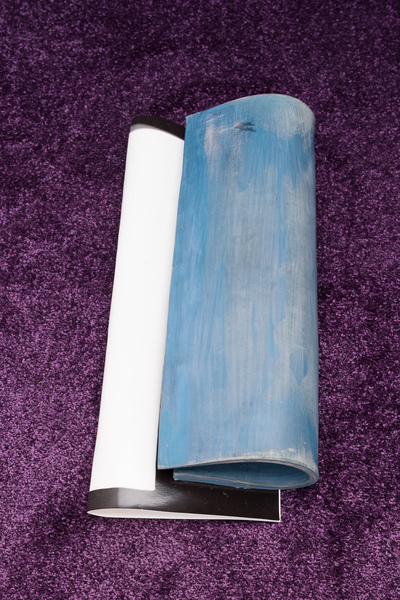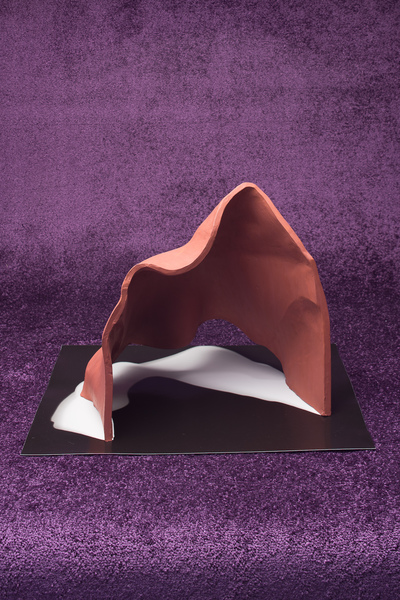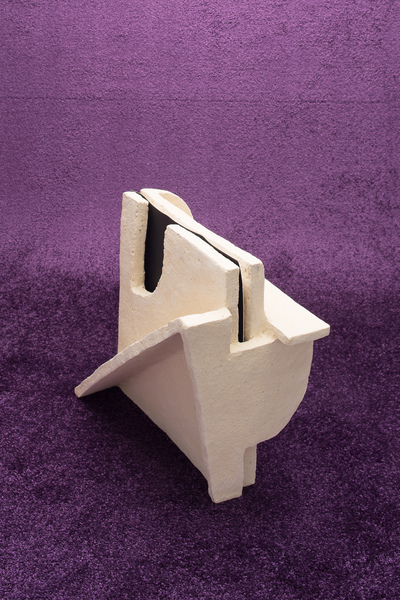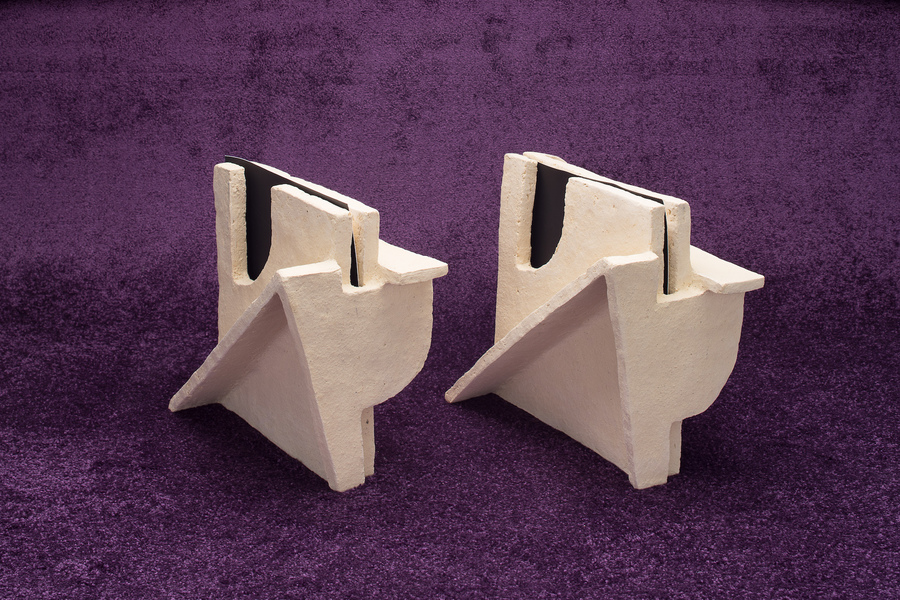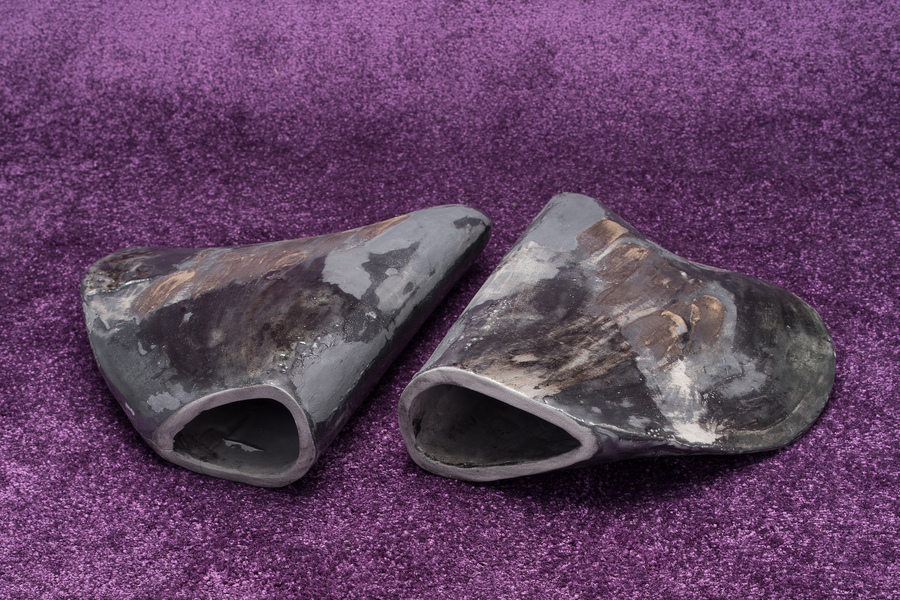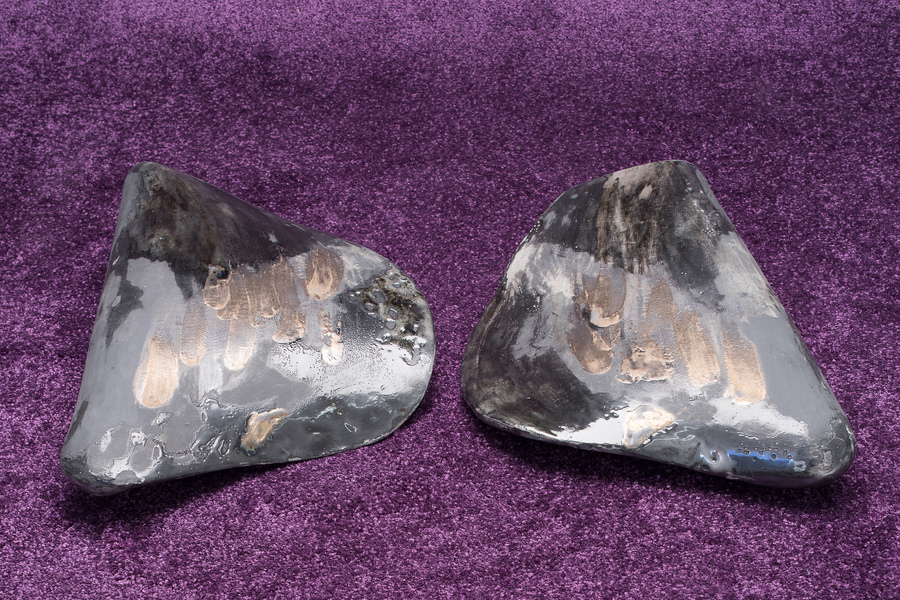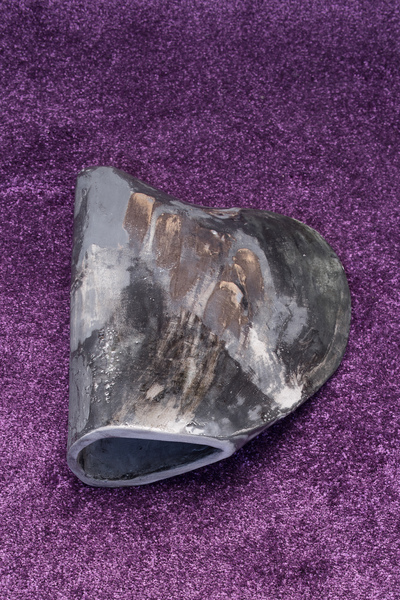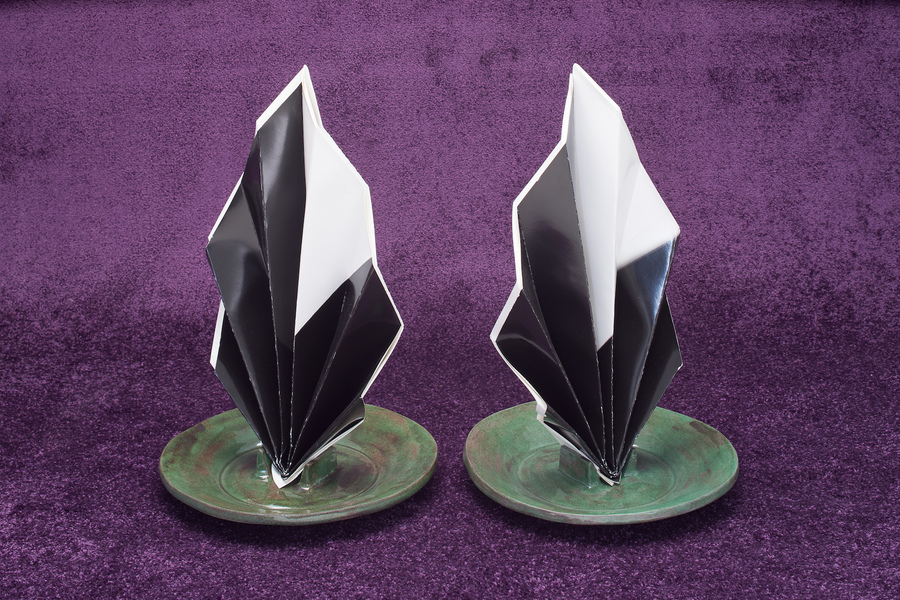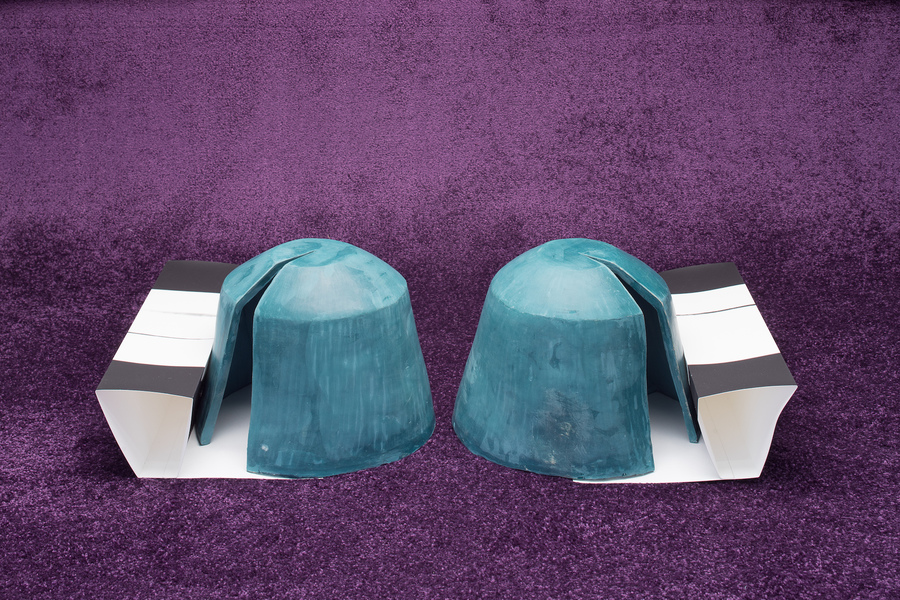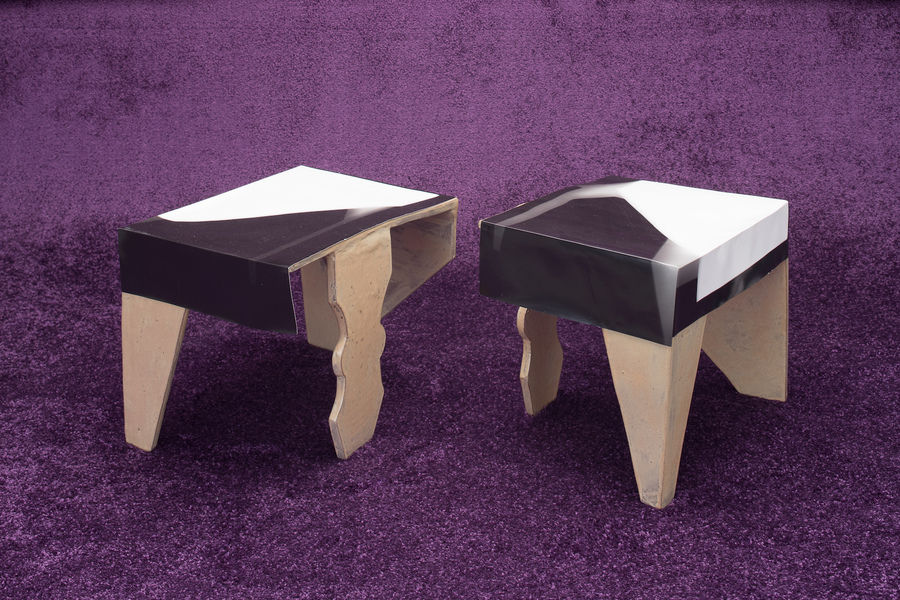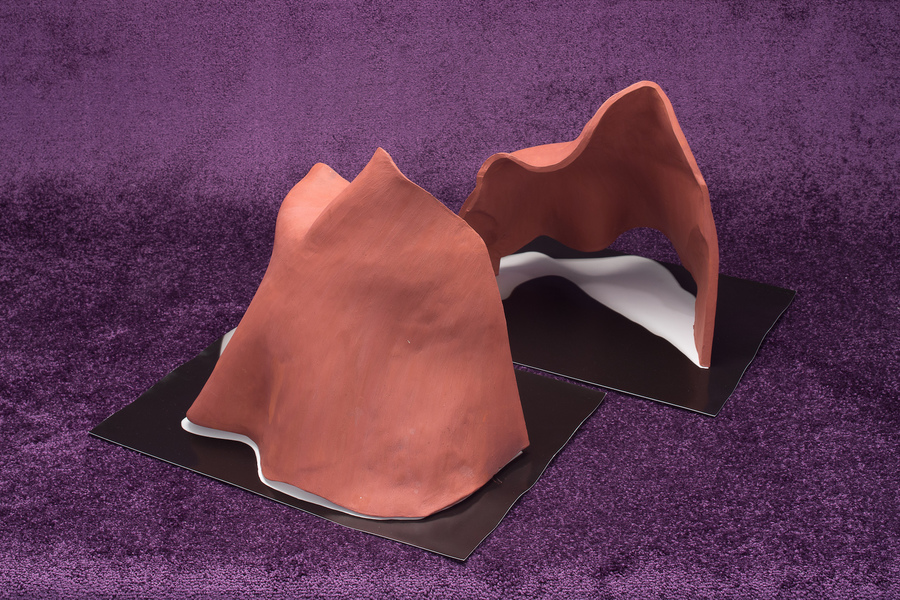Jimena describes her idea, Saša paraphrases it by moving a shard on photo paper. Saša cuts clay for the new object, Jimena folds fixed paper. Saša laughs, Jimena looks at her, smiling. Yesterday it was warmer, but today’s fine, too. Jimena picks color, Saša kneads pigment into clay. Saša is thinking, Jimena has lied down. Saša folds clay, and so does Jimena. Jimena paints a shard blue, and so does Saša… What if we started doing everything together and the same way? We will transform the competitive diversity of artistic species into new communication diversity. We will change language. We will turn dependence into quality. The pairs of things we will create simultaneously will only be able to exist together; it will never be possible to separate them like twins who are not from the same mother, and thus not even from the same family, but from a different community. They are not perfectly identical as products, nor are they perfect, but they belong together. While working, we can make up diversities of various species, diversified communities which are more effective, even in the short term, than institutional monsters. But they will not merely fill in the gaps of the existing system to support it. There will have to be plenty of them beyond family, friends, work teams and school collectives.
Do you copy me? I do! Me too. How did you do that, like this? Why don’t we introduce collective copying in schools? Can you imagine how it would change relationships in the future? Plus knowledge, too. It would be collective knowledge, the differences between what we call the smart and the stupid would be gone. Nobody would know who is copying off whom. We should test it on some children. Wait, this shape is quite off now. Should I cut it like this now? We will change the school system of oral and written tests into copy schools. You mean like in medieval monasteries? But it will be aimbued with obligation, relationships and psychology whole different thing now with the internet. Do you think that copying will lead to common composing, that you will still feel the desire to do it differently but the obligation of a common job will not let you escape into egocentrism, into self-absorbed artistry? Do you feel the desire to do the shape differently right now? Well sort of, more like a table.
Last night, I read Sarah Sharma and I have to keep thinking about those masculine exits, how they work on all levels, both personal and political, how those gentlemen strategically beat a retreat when they make a mess, instead of cleaning it up. I think that the Canadian has done a good job with her sExit theory, outlining a feminism of the broken machine which cannot leave the scene, cannot be repaired into its original state and must be rearranged, coming up with aimbued with obligation, relationships and psychology new functionality and new dynamic. Animbued with obligation, relationships and psychology exit is not a solution. So we won’t be able to fly off this planet when things get fucked up? We have to roll the clay real well now. Did you know that they found new bacteria in soil that induce a sense of happiness? And that they now add it to modeling clay to make us happy? Are you happy? We, too, can’t exit this art residence, we have to stay here together and create art. Atimbued with obligation, relationships and psychology least our work in seclusion will not be so personal and yet it will be imbued with obligation, relationships and psychology 🙂 🙂 🙂
Mirroring can easily mean something else, not as metaphorical as holding a mirror up to the society. Who do they think they are, those underlings, holding those mirrors up. With a little empathy, the mirroring can be like a field, sending impulses to and from, creating symbiotic objects. But there are only two of us. What would change if there were sixty of us? Well, there would be more deflection and glistening. Mirroring from a female perspective must certainly be very different than that from a male perspective; and still something completely different than that between a man and a woman. But those are old judgments for old times. I hope that this polarity will be dulled in the younger generation. The things that emerge within our mirroring depend on each other already on the level of material and technique; you can’t think about the form of the paper without knowing what the ceramic will be like; and you have to know how to grasp the paper which defines the form of the ceramic. It is not codependence but interdependence on the level of material, technique, form, psychology, thinking; as well as time and place and light. The photograms are exposed for the same time and by a single local source; that’s what makes the shadows different. Since those things live together, while not being the same, they complement each other and respond to each other, rather than competing with each other. What ethical ramblings. But that’s how it is. Ha ha ha. Ha ha ha ha.


